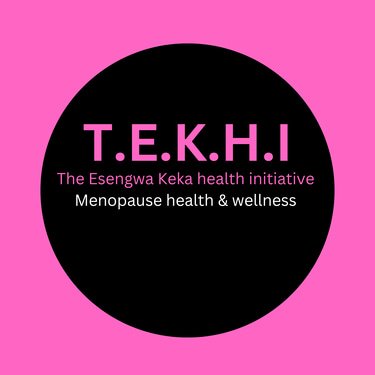Understanding Vaginal Changes During Menopause and How to Care for It
Maintaining vaginal health during menopause is crucial for overall well-being. Simple lifestyle changes can have significant impacts. One essential strategy is adopting a balanced diet rich in vitamins and antioxidants. Incorporate foods like fruits, vegetables, whole grains, and lean proteins to promote hormonal balance and overall vaginal health. Staying hydrated is equally important, as proper hydration helps maintain the mucosal linings, including the vaginal tissue.....


Hormonal Shifts and Their Impact on Vaginal Health During Menopause
Menopause marks a significant phase in a woman's life, primarily characterized by the cessation of menstrual cycles and accompanied by substantial hormonal shifts. The primary hormonal change during menopause is a marked decline in estrogen levels. Estrogen plays a crucial role in maintaining the health of the vaginal tissues, and its reduction can lead to several notable changes. Without sufficient estrogen, the vaginal walls tend to thin, while their elasticity decreases, contributing to a condition known as vaginal atrophy.
Moreover, the reduction in estrogen levels significantly impacts vaginal lubrication. The decrease in natural lubrication often leads to vaginal dryness, a common and troublesome symptom during menopause. This dryness can cause itching and burning sensations, which might become persistent and uncomfortable. The decreased elasticity and lubrication can also result in discomfort during sexual intercourse, a condition medically referred to as dyspareunia. Women encountering these issues may experience a substantial decline in their quality of life and sexual satisfaction.
Understanding these hormonal changes is crucial for maintaining vaginal health during menopause. The thinning of the vaginal walls makes them more susceptible to injuries and infections, posing an increased risk for conditions like bacterial vaginosis and urinary tract infections. Recognizing the symptoms such as dryness, itching, and dyspareunia enables timely intervention and appropriate care. Awareness and proactive management of these symptoms can significantly enhance a woman's comfort and overall well-being during this transitional phase.
Proper vaginal care strategies during menopause often include the use of estrogen creams, lubricants, and moisturizers, alongside lifestyle adjustments aimed at promoting overall health. Regular gynecological checkups are also essential for monitoring vaginal health and addressing any concerns promptly. In essence, understanding the intricate relationship between hormonal shifts and vaginal health provides a solid foundation for effective management and a smoother transition through menopause.
Common Vaginal Issues Experienced During Menopause
Menopause marks a significant transition in a woman's life, often accompanied by various physical changes, particularly in vaginal health. One prevalent issue is vaginal atrophy, characterized by thinning, drying, and inflammation of the vaginal walls due to decreased estrogen levels. This condition not only leads to discomfort but can also cause painful intercourse, known as dyspareunia, which significantly affects intimate relationships and overall well-being.
Another common concern during menopause is an increased susceptibility to genital infections. The vaginal flora, which maintains a healthy balance of bacteria and yeast, is altered by hormonal fluctuations, making the vagina more prone to infections such as bacterial vaginosis and yeast infections. These infections can be recurrent and result in itching, burning, and unpleasant discharge, further impacting a woman's quality of life.
Additionally, urinary tract infections (UTIs) become more prevalent in menopausal women. The decline in estrogen levels can lead to changes in the urinary tract, increasing the risk of UTIs. Symptoms include a frequent need to urinate, pain during urination, and pelvic discomfort. Frequent UTIs can cause considerable distress and may also necessitate medical intervention to prevent more severe complications.
The emotional and psychological impacts of these vaginal issues should not be underestimated. Women may experience decreased self-esteem, anxiety, and depression due to the physical discomfort and changes in their intimate relationships. It is crucial for women going through menopause to seek support and communicate openly with their partners and healthcare providers.
Given the array of vaginal problems that can arise during menopause, it is paramount to consult healthcare professionals for proper diagnosis and treatment. Medical experts can offer tailored advice and treatments, such as hormone replacement therapy, topical estrogen, or non-hormonal lubricants and moisturizers, to alleviate symptoms and improve quality of life.
Effective Strategies for Vaginal Care During Menopause
Maintaining vaginal health during menopause is crucial for overall well-being. Simple lifestyle changes can have significant impacts. One essential strategy is adopting a balanced diet rich in vitamins and antioxidants. Incorporate foods like fruits, vegetables, whole grains, and lean proteins to promote hormonal balance and overall vaginal health. Staying hydrated is equally important, as proper hydration helps maintain the mucosal linings, including the vaginal tissue.
Regular pelvic floor exercises, also known as Kegel exercises, are beneficial for strengthening the vaginal muscles. These exercises can help manage urinary incontinence, enhance sexual function, and support overall pelvic health. Consistency is key, so aim to incorporate these exercises into your daily routine.
Vaginal dryness is a common issue during menopause. Using vaginal moisturizers and lubricants can alleviate dryness and reduce discomfort. Vaginal moisturizers can provide long-lasting hydration to vaginal tissues, while lubricants can ease discomfort during sexual activity. Opt for products free from irritants and fragrances to avoid further irritation.
Hormone Replacement Therapy (HRT) is another option for managing vaginal changes during menopause. HRT can be highly effective in alleviating symptoms by replenishing the body's estrogen levels. However, it is essential to consult with a healthcare provider to understand the benefits and potential risks involved. For those who seek non-hormonal treatments, options such as vaginal estrogen creams, rings, or tablets can provide localized relief.
Regular gynecological check-ups are imperative for ongoing vaginal health. These appointments allow for the early detection of potential issues and provide an opportunity to discuss any concerns with a healthcare provider. Personalized advice can be invaluable in navigating the changes that come with menopause.
Open communication with partners is also crucial. Discussing vaginal changes and comfort levels during intimacy can foster understanding and intimacy, ensuring that both partners feel comfortable and supported.
```
